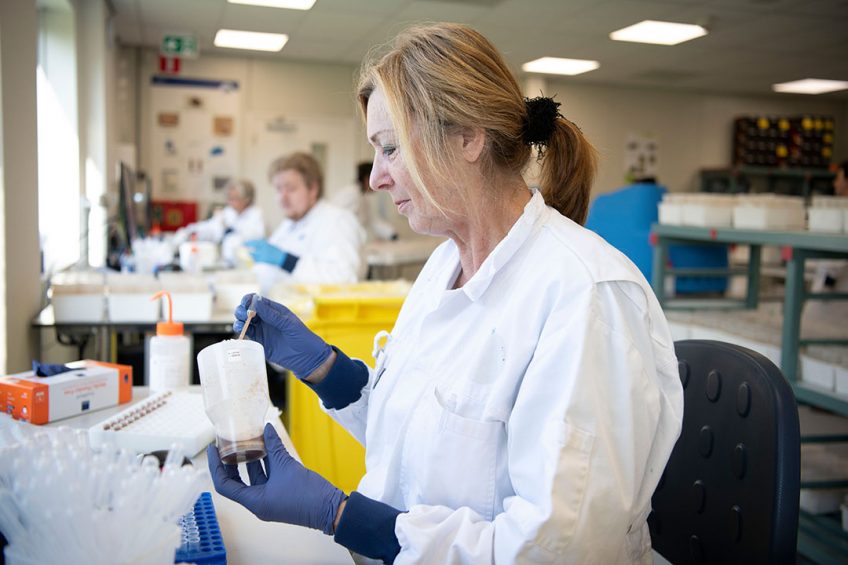Influenza antibodies reduce disease in chickens

Scientists have engineered synthetic antibody molecules that can be administered to poultry to reduce the symptoms of influenza. The molecules also decrease the amount of influenza virus shed into the environment, suggesting there is potential for their use as immunotherapy treatments to reduce the burdens of influenza in poultry.
The research, conducted by a team at the Pirbright Institute, Surrey, UK, involved generating synthetic antibodies against the H9N2 strain of avian influenza, which poses significant risks to both the poultry sector and wider avian and mammalian species due to its ability to adapt to new hosts through mutation.
The modified antibody segments, known as single chain variable fragment antibodies (scFvs), were shown to prevent the H9N2 virus from entering cells in laboratory tissue cultures. Further testing showed that chickens immunised intranasally with scFvs produced lower levels of virus and presented decreased weight loss compared to those that had not received treatment. The scFvs antibodies work by binding to proteins on the outside of the influenza virus, called haemagglutinin (HA), that attach to receptors on host cells. The prevents the virus from entering the cell and replicating, offering rapid protection to infected birds.

Track the movement of Avian Influenza
For everything you need to know about AI, from the latest outbreaks to controls stay up to-date…
To create the scFVs, the team immunised mice with an influenza vaccine, which triggered the production of mouse antibodies that could neutralise the H9N2 virus. The genetic code for 2 section of the antibodies that bind to the HA protein was then sequenced. Using genetic engineering, they linked these 2 sections together to create one new smaller antibody molecule (the scFvs). By generating these smaller molecules, the team was able to overcome issues presented by using whole antibodies, such as lower production rates and increased likelihood of immune rejection by species other than chickens.
These results are encouraging and demonstrate that scFvs could provide a quick and efficient way of reducing the clinical signs of influenza and its spread in infected flocks, reducing the risk of transmission from poultry to humans.” – Professor Munir Iqbal
Published in Vaccines, the scFvs created in this study have additional advantages including their ability to be mass produced in insect cells and the fact they could work against the virus in all hosts without adaption. Commenting on the results, Professor Munir Iqbal, head of the avian influenza group at Pirbright, said: “These results are encouraging and demonstrate that scFvs could provide a quick and efficient way of reducing the clinical signs of influenza and its spread in infected flocks, reducing the risk of transmission from poultry to humans. “The next step will be to establish the best method for administration, whether this be intranasally, as we have done in this study, or via aerosol or viral vector delivery systems.” Prof Iqbal added that the type of immunotherapy could be used to treat other viral diseases of poultry and humans.













